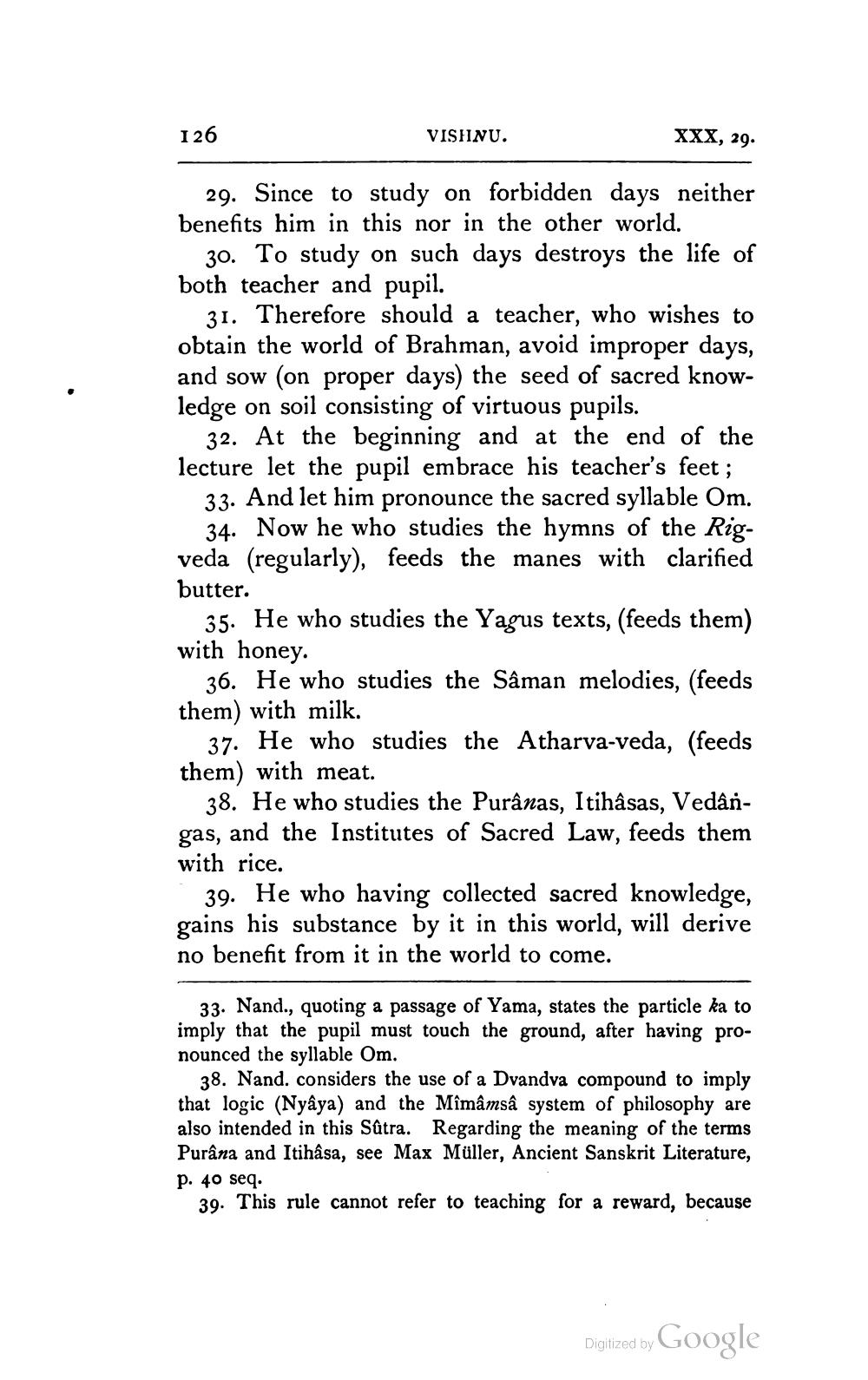________________
126
VISHNU.
XXX, 29.
29. Since to study on forbidden days neither benefits him in this nor in the other world.
30. To study on such days destroys the life of both teacher and pupil.
31. Therefore should a teacher, who wishes to obtain the world of Brahman, avoid improper days, and sow (on proper days) the seed of sacred knowledge on soil consisting of virtuous pupils.
32. At the beginning and at the end of the lecture let the pupil embrace his teacher's feet;
33. And let him pronounce the sacred syllable Om.
34. Now he who studies the hymns of the Rigveda (regularly), feeds the manes with clarified butter.
35. He who studies the Yagus texts, (feeds them) with honey.
36. He who studies the Sâman melodies, (feeds them) with milk.
37. He who studies the Atharva-veda, (feeds them) with meat.
38. He who studies the Puranas, Itihâsas, Vedângas, and the Institutes of Sacred Law, feeds them with rice.
39. He who having collected sacred knowledge, gains his substance by it in this world, will derive no benefit from it in the world to come.
33. Nand., quoting a passage of Yama, states the particle ka to imply that the pupil must touch the ground, after having pronounced the syllable Om.
38. Nand, considers the use of a Dvandva compound to imply that logic (Nyâya) and the Mîmâmsâ system of philosophy are also intended in this Satra. Regarding the meaning of the terms Purâna and Itihâsa, see Max Müller, Ancient Sanskrit Literature, p. 40 seq.
39. This rule cannot refer to teaching for a reward, because
Digitized by Google




